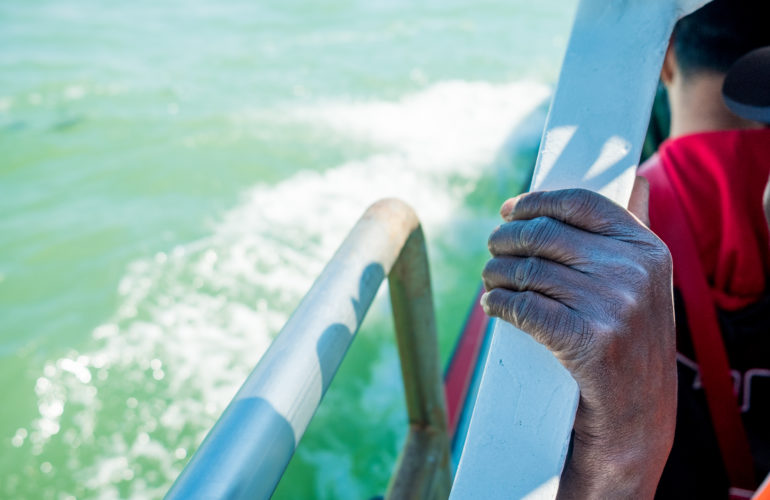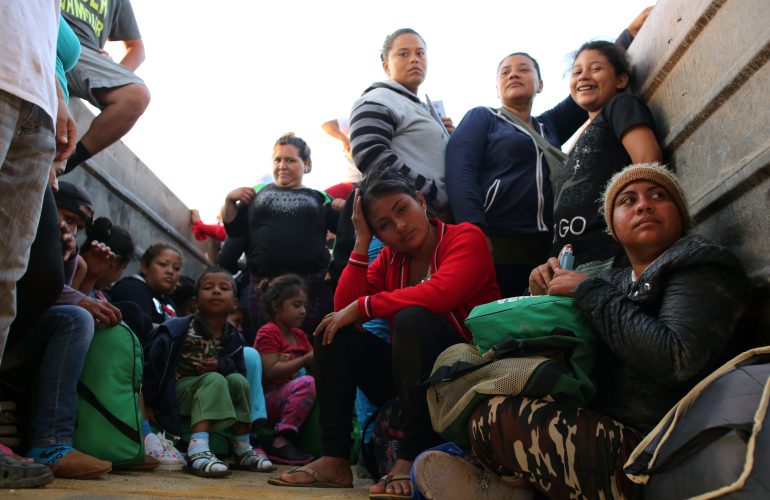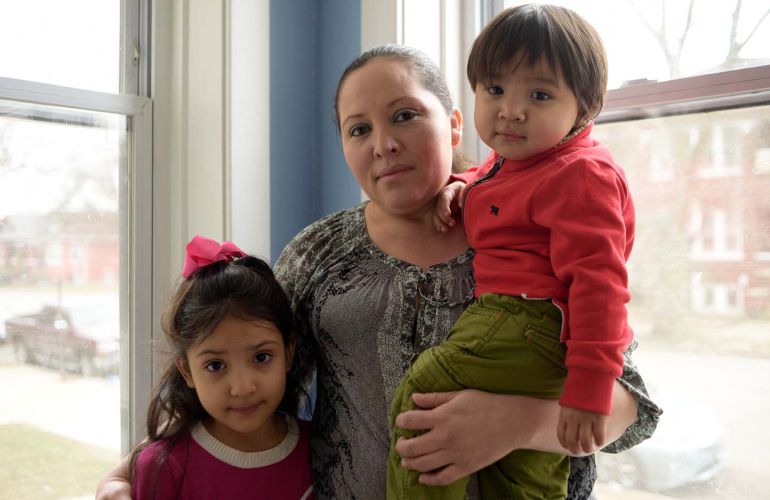ICMC Joins Expert Panel on Global Migration Governance at the International Migration Review Forum
ICMC Director of Policy Stéphane Jaquemet participated in an official IMRF side event on the contribution of Regional Consultative Processes (RCPs)* to the Global Compact for Safe, Orderly and Regular Migration.

By Rachel Westerby
The first edition of the International Migration Review Forum (IMRF) is taking place in New York on 17-20 May 2022. The IMRF is the primary intergovernmental global platform to discuss and share progress on the implementation of all aspects of the Global Compact for Safe, Orderly and Regular Migration* (GCM). It is convened every four years, and each edition produces a Progress Declaration.
The program of the first IMRF includes a series of official side-events bringing Member States and non-State stakeholders together in informal discussion and exchange on specific thematic aspects of the GCM’s implementation.
On 17 May 2022, ICMC Director of Policy Stéphane Jaquemet participated in an expert panel of the official IMRF side event ‘Strengthening Regional Consultative Processes (RCPs)** Contributions to and Cooperation on Objective 23 of the Global Compact for Safe, Orderly and Regular Migration’. The side event was organized by the Ministry of Human Resources and Emiratisation of the Government of the United Arab Emirates, which chaired the Abu Dhabi Dialogue RCP until October 2021.
Objective 23 of the GCM calls for stronger international cooperation and global partnerships for safe, orderly and regular migration, including State-led processes such as RCPs. What role have RCPs played in GCM implementation to date? Should RCP objectives be better aligned with those of the GCM, and could RCPs create mechanisms to share best practices and insights on the GCM at an inter-regional level?
To address these questions, the side event convened an expert panel in which ICMC’s Jaquemet spoke alongside representatives of four RCPs (the Abu Dhabi Process, the Bali Process, the Budapest Process, and the Regional Conference on Migration/Puebla Process).
Panel participants agreed that RCPs play an important role in the architecture of migration, providing a foundation for enhanced cooperation at the bilateral and global levels. “The more active RCPs such as those here today have accumulated an enormous amount of expertise and practices that contribute to the GCM,” Jaquemet assessed. “Governments have been able to put difficult migration questions on the table and have honest and transparent discussions.”
In addition to the contribution of RCPs to the international cooperation goals of GCM Objective 23, RCP representatives offered examples of actions that contribute to specific GCM objectives and assist States in fulfilling their commitments. Calling on RCPs to actively contribute their specific knowledge and expertise to the GCM’s implementation, Jaquemet however cautioned against a closer involvement of RCPs in regional reviews of GCM progress. “What we have now is not perfect,” he explained, “but we must remember that the responsibility for migration decisions lies with governments.”
Jaquemet’s recommendation was echoed by His Excellency Abdulla Al Nuaimi, Assistant Undersecretary at the Ministry of Human Resources and Emiratisation of the U.A.E. and Secretary-General of the Abu Dhabi Process. “While it is important that RCPs report to the GCM, this has limits, he explained. “RCPs cannot replace the responsibility of Member States to report on national progress on the GCM.”
On how civil society can contribute to better aligning RCPs with the implementation of the GCM, Jaquemet offered the example of the 2020 Global Forum on Migration & Development (GFMD) chaired by the government of the United Arab Emirates. “In addition to civil society, the U.A.E chairmanship opened up the GFMD to the Business and Mayors Mechanisms and to youth,” he said. “While RCPs should be State-led and States should be accountable, there must be a similarly broad and general invitation to civil society to engage beyond solely being ‘experts’.”
Jaquemet concluded by recommending that the GCM regional review process be structured according to RCP clusters and memberships. “The GCM review process in 2020 grouped States without reference to migratory movements, whereas RCPs are flexibly organized around migration corridors,” he explained. “Restructuring the GCM review process in this way would greatly assist us as civil society to better support the best possible contribution of RCPs to the GCM.”
*The Global Compact for Safe, Orderly and Regular Migration is an international agreement adopted by 152 States in December 2018. As the first-ever global framework for migration governance, it aims to increase international collaboration on all aspects related to migration, including human rights, humanitarian needs, and development.
**Regional consultative processes on migration (RCPs) are non-binding, State-led and ongoing regional information-sharing and policy dialogues that facilitate cooperative discussion on specific migration issues amongst States drawn from within an agreed region. RCP clusters both large and small now operate across all continents, although their goals, membership, and activities are not necessarily identical.
Rachel Westerby is an independent writer and researcher on migration, refugees and integration.



